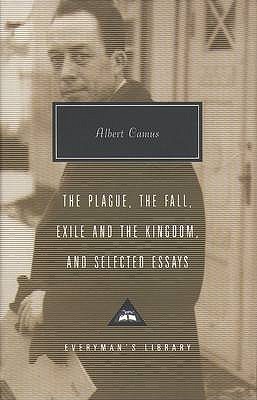
The Stranger
Book Description
A man sits quietly on a beach, oblivious to the chaos swirling around him, as a single act spirals into existential turmoil. Love, loss, and the absurdity of life collide in a world where meaning slips through fingers like sand. As Meursault confronts society's expectations and the fragility of human connections, the line between indifference and passion blurs. Friends become strangers, and every moment is steeped in tension and revelation. What happens when one man’s unyielding truth clashes with the world’s need for meaning? Dive into the gripping narrative of 'The Stranger'—what will you find in life’s ultimate confrontation?
Quick Book Summary
"The Stranger" by Albert Camus centers on Meursault, a detached and emotionally indifferent French Algerian man whose life takes an irreversible turn after he commits an unplanned murder. The novel explores existential themes as Meursault becomes ensnared in the legal system that seeks to punish him more for his apparent lack of feeling than the crime itself. Through Meursault’s passive acceptance of chance and his refusal to feign emotions he does not feel, Camus probes what it means to live authentically in an indifferent universe. Ultimately, Meursault’s fate becomes a meditation on the absurdity of existence and society’s desperate search for meaning in actions and beliefs.
Summary of Key Ideas
Table of Contents
The Absurdity of Existence
Meursault, a French Algerian office worker, lives seemingly untouched by emotion or conventional sentiment. The death of his mother, which opens the novel, leaves him outwardly unmoved, baffling those around him. He spends his days pursuing basic pleasures—bathing in the sea, engaging in a casual romance, and socializing with neighbors. Meursault’s passivity and routine are disrupted when he becomes embroiled in a conflict involving his friend Raymond, ultimately leading to Meursault shooting and killing an unnamed Arab man in a moment of dispassionate impulse.
Alienation and Emotional Detachment
As Meursault awaits trial, the narrative delves deeper into his emotional detachment and inability to conform to society’s expectations of remorse, love, or grief. He remains honest to a fault, refusing to embellish his feelings or actions to fit social norms. This dispassion unsettles those who judge him: to them, failing to cry at his mother’s funeral is as much a crime as the killing itself. Camus uses Meursault to explore the alienation of living authentically in a world that rewards conformity and punishes those who differ.
Society’s Demand for Meaning
During his trial, the focus shifts from the murder to Meursault’s character and lack of spiritual deviation. Prosecutors and witnesses dwell on his indifference at his mother’s funeral and his life choices, suggesting that his failure to perform grief or demonstrate religious faith is tantamount to immorality. The legal proceedings become less about justice for the crime and more about condemning Meursault’s worldview. This culmination exposes society’s reliance on prescribed emotions and rituals to ascribe meaning to existence.
Indifference to Social Conventions
In his cell, Meursault confronts the inevitability of death and the meaninglessness of life, echoing Camus’s theory of the absurd. He comes to reject both despair and false hope, choosing instead to accept the world’s indifference. His realization brings a sense of peace and freedom, as he admits the futility in seeking rational explanations or divine purpose. Death, for Meursault, is the only true certainty in an incomprehensible universe.
Confronting Mortality
The novel concludes with Meursault awaiting execution, at peace with himself and free from illusions. His journey, marked by estrangement from others and the world, exemplifies the existential tension between the search for meaning and the acceptance of the absurd. Camus’s novel ultimately challenges readers to confront uncomfortable truths about authenticity, mortality, and society’s relentless quest for significance in a world that may offer none.
Download This Summary
Get a free PDF of this summary instantly — no email required.





